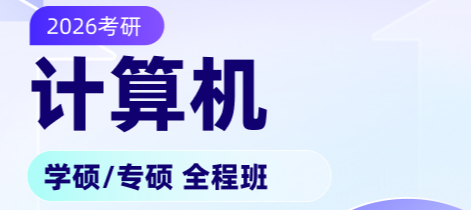1998-2022 ChinaKaoyan.com Network Studio. All Rights Reserved. 滬ICP備12018245號
2017考研英語閱讀精選:互聯網訂餐公司提供多樣化服務
當北京被籠罩在濃霧中,三輛摩托車在30秒內路過一個十字路口。他們都帶著一個大盒子,里面裝滿了食物,上面標著中國三大食品訂購平臺的名字。
When Beijing was blanketed by heavy smog, three motorcycles passed by a crossroads within 30 seconds. All of them were carrying a big box, stuffed with food and bearing the name of one of China's three largest food-ordering platforms.
摩托車手是“餓了么”公司的快遞員,它是有著六年歷史的新興公司,類似于美團、百度外賣的團購,是由搜索引擎巨頭百度公司推出的訂餐服務。
The motorcyclists were couriers from Ele.me, a six-year-old startup, Groupon-like Meituan.comand, Baidu Waimai, a food-ordering service launched by search engine giant Baidu Inc.
他們在繁忙的車流中穿梭,配送消費者在線訂購的晚餐。
They were winding through busy traffic to deliver dinners that consumers had ordered online.
長時間的霧霾推動了正在中國蓬勃發展的外賣需求。作為全球第二大經濟體的中國,由于智能手機的用戶擴增,越來越多的消費者轉向使用手機軟件訂餐。
The days-long smog is stoking demand for a business that is booming in China. Thanks to the proliferation of smartphones in the world's second-largest economy, a growing number of consumers are turning to mobile apps for catering services.
據北京互聯網咨詢公司易觀國際統計,在第二季度,線上到線下,或O2O,餐飲業交易達到82億元(13億美元),比上一季度增長89%。
In the second quarter, online-to-offline, or O2O, catering industry transactions hit 8.2 billionyuan ($1.3 billion), up by 89 percent from last quarter, according to Beijing-based Internet consultancy Analysys International.
研究公司艾瑞咨詢集團說,雖然網上訂餐只占餐飲行業一小部分比例,但就更多的消費者習慣于網上訂餐而言,其市場規模有望在2017年突破400億。
Although online food ordering only accounts for a small proportion of the catering industry, research company iResearch Consulting Group says its market volume is expected to hit 40 billion yuan in 2017, as more consumers develop the habit of booking meals online.
“餓了么”的共同創始人和首席運營官康佳表示,該平臺正在擴大一天5個高峰段的食品送貨服務。
Kang Jia, co-founder and chief operating officer of ele.me, saying that the platform is expanding its food delivery services to five peak-time phases in one day.
“不像我們的同行,只專注于普通的三餐,我們在下午增加甜點和小吃,因為大多數白領往往都會喝茶休息,”康佳說。“現在大約19%的訂單是午后服務。”
Unlike our peers which only focus on the regular three meals, we are adding desserts and snacks in the afternoon since most white-collar workers tend to have a tea break, Kang said. "Now around 19 percent of orders are for afternoon services."
公司還推出了特殊的夜宵服務,以滿足人們深夜增長的食欲。“這是最有前途的商機,因為它涵蓋了很長的時間范圍,從晚上8點,也許一直到第二天凌晨2點。”康佳補充說。
The company is also rolling out special snacks to meet people's growing appetite late at night. "This is the most promising niche because it covers a long time range which starts from 8 pm to maybe 2 am the next day," Kang added.
來源未注明“中國考研網\考研信息網”的資訊、文章等均為轉載,本網站轉載出于傳遞更多信息之目的,并不意味著贊同其觀點或證實其內容的真實性,如涉及版權問題,請聯系本站管理員予以更改或刪除。如其他媒體、網站或個人從本網站下載使用,必須保留本網站注明的"稿件來源",并自負版權等法律責任。
來源注明“中國考研網”的文章,若需轉載請聯系管理員獲得相應許可。
聯系方式:chinakaoyankefu@163.com
- 2026考研英語全程班 6班
- 權威高配師資親授技巧,教研千錘百煉科學提分。直錄播課相結合精講互動二合一,專業團隊精細化作文批改。講練結合,隨學隨練穩步提升。支持試聽~
- 主講團隊:王江濤、譚劍波、董仲蠡、許聰杰、陳志超、潘赟、鄭艷彤、易熙人

掃碼關注
了解考研最新消息












